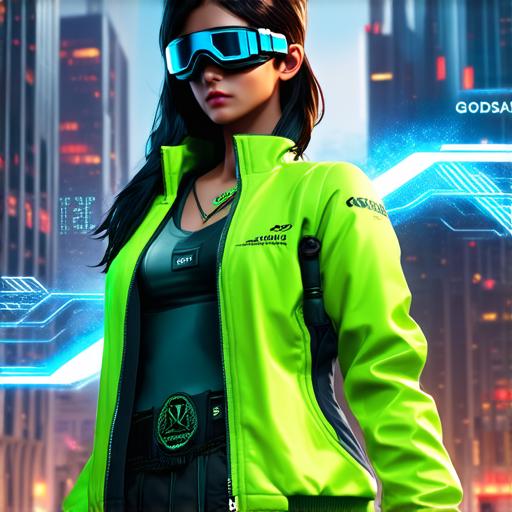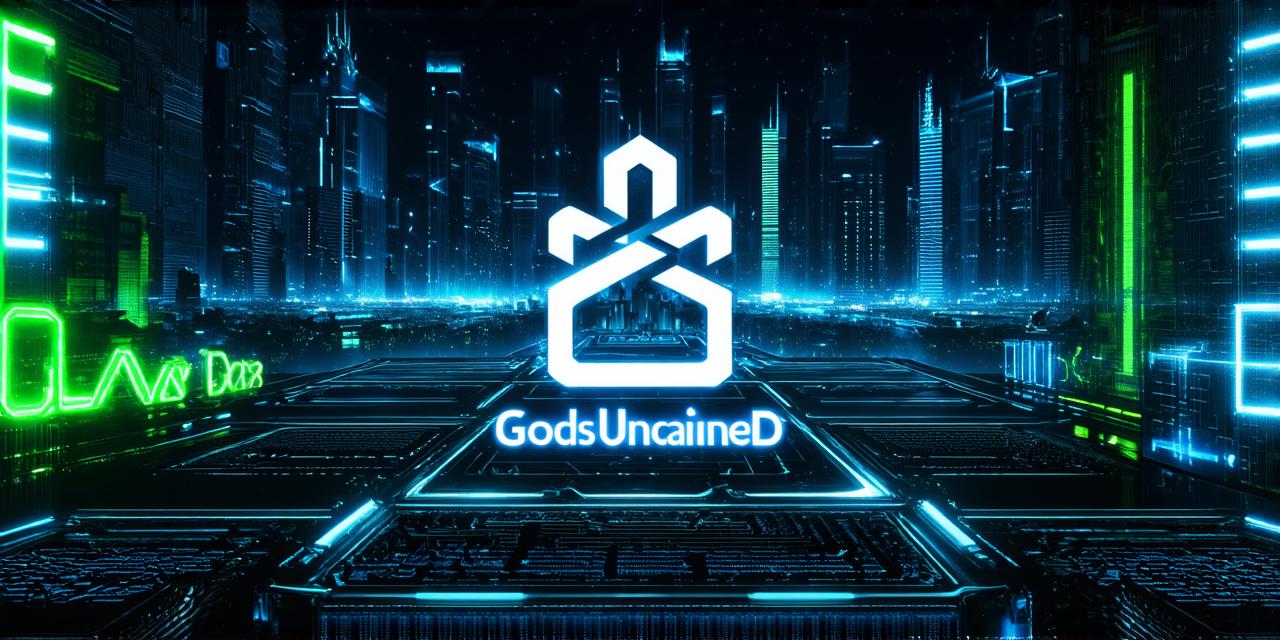Introduction:
Blockchain technology has revolutionized the gaming industry by enabling secure and transparent transactions within games.
Which Blockchain Powers In-Game Transactions in Gods Unchained?
Gods Unchained is a collectible card game that allows players to buy, sell, and trade in-game assets using Ethereum as its primary blockchain.
Ethereum is a decentralized platform that enables developers to build applications and smart contracts on top of it. It is an ideal choice for games that require secure and transparent transactions.

Ethereum’s smart contract functionality allows Gods Unchained to create unique in-game assets that can be traded using Ethereum tokens. These assets can be anything from collectible cards to in-game items such as weapons, armor, and potions. The use of blockchain technology ensures that these assets are unique, secure, and cannot be duplicated or stolen by other players.
In addition, Ethereum’s immutable ledger ensures that all transactions within the game are recorded and visible to everyone on the network. This transparency enables players to trust each other and conduct secure transactions without the need for intermediaries such as banks or payment processors.
How Does Blockchain Technology Impact Gods Unchained?
The use of blockchain technology in Gods Unchained has had a significant impact on the game’s development. Here are some ways it has made a difference:
- Security and Transparency: The use of Ethereum as the primary blockchain ensures that all transactions within the game are secure and transparent.
- Unique Assets: The use of Ethereum’s smart contract functionality allows Gods Unchained to create unique in-game assets that cannot be duplicated or stolen by other players.
- Token Economy: The use of Ethereum tokens enables players to buy, sell, and trade in-game assets using a decentralized token economy. This has created new opportunities for players to earn rewards by participating in the game’s ecosystem.
- Community Building: The use of blockchain technology in Gods Unchained has enabled the game to build a strong community around it. Players can connect with each other on social media platforms, join guilds and clans, and participate in community events. This has helped the game attract new players and retain existing ones.
Examples of In-Game Transactions in Gods Unchained
Let’s take a look at some examples of in-game transactions in Gods Unchained to see how blockchain technology is being used:
- Buying and Selling Collectible Cards: Players can buy and sell collectible cards using Ethereum tokens. These cards are unique and cannot be duplicated or stolen by other players. This creates a sense of scarcity and exclusivity, which has attracted more players to the game.
- Trading In-Game Items: Players can trade in-game items such as weapons, armor, and potions using Ethereum tokens. These items are unique and cannot be duplicated or stolen by other players. This creates a sense of scarcity and exclusivity, which has attracted more players to the game.
- Participating in PvP Tournaments: Players can participate in PvP tournaments using Ethereum tokens. The use of blockchain technology ensures that all transactions are secure and transparent, and players can trust each other to conduct fair trades. This has created new opportunities for players to earn rewards by participating in the game’s ecosystem.
Summary:
In conclusion, Ethereum is the primary blockchain used to power in-game transactions in Gods Unchained. The use of blockchain technology has had a significant impact on the game’s development, enabling it to build a strong community around it, increase security and transparency, and create unique in-game assets that cannot be duplicated or stolen by other players.
FAQs:
1. What is the primary blockchain used in Gods Unchained?
Ethereum is the primary blockchain used in Gods Unchained.
2. How does Ethereum impact Gods Unchained?
Ethereum’s smart contract functionality allows Gods Unchained to create unique in-game assets that can be traded using Ethereum tokens. It also enables a decentralized token economy and increases security and transparency within the game.
